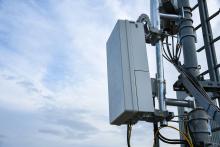Wired and wireless telecom operators are starting to use Wi-Fi hotspots, not as profit generators, but as loss leaders in bundles that include other services, such as wireless voice and DSL. This is good news for both enterprises and individuals, particularly as various wireless technologies, such as cellular and voice-over-WLAN, start converging. But there is a potential "gotcha" that comes along with it.
T-Mobile was first with such bundles, offering hotspot access to its mobile voice users at reduced prices. That bundle is widely credited by analysts with helping T-Mobile grow quickly in the U.S. More recently, SBC offered hotspot access to its DSL customers for just a couple of bucks a month.
Hotspots alone aren't yet profitable, but usage is growing, and the buzz is loud. That's why they're attractive as come-ons for other services. After all, many telecoms are struggling to remain relevant, as demand for traditional services declines and demand for newer, wireless communications increases.
These bundles are win-win opportunities, then, for both the telecoms and their customers. But the gotcha is that, in the long-term, these bundles could put a damper on competition. Given the breadth of offerings from companies like SBC, smaller companies will have a difficult time keeping up. Eventually, this could lead to the dominance of these old-guard companies in new communications venues, much as they currently dominate old-style communications. That, in turn, eventually will lead to decreased competition.
Depending on whether you're a glass-is-half-full or half-empty type, these bundling offers are either a shining example of how large, established companies can change with the times, or a hammer used by these companies to beat their smaller competitors into submission. In either case, this turn of events will require the smaller companies to remain fast on their feet to keep up with the large competitors.








